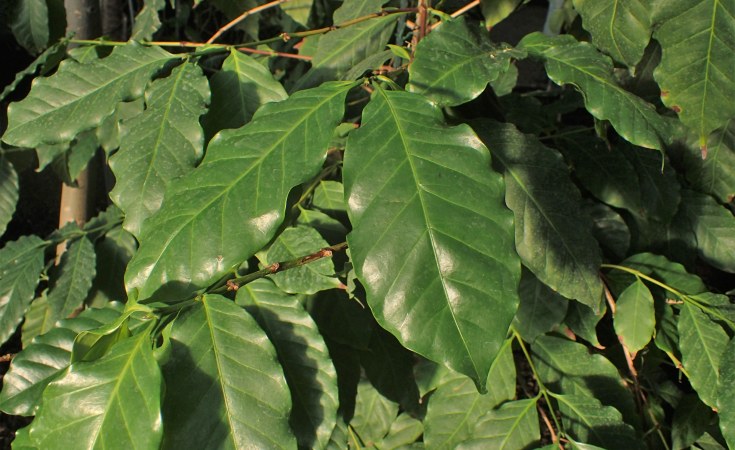Nairobi, Kenya — For more than 17 years, Alice Muchugi has led the Center for International Forestry Research and World Agroforestry (CIFOR-ICRAF) program on tree genetic resources. The organization is concerned with ensuring tree genetic resources are used sustainably and conserved, and even reaching out to those who aren't yet aware of how they should be utilized, or ensuring that we know their diversity before it is lost.
Muchugi places great attention on the vital role of germplasm in diversity saying that it includes live plants, suspension cultures, and more than just seeds. She gives the example of maize in East Africa which was almost eradicated due to the Little Necrosis disease. The term germplasm describes seeds, plants, or plant parts used in crop breeding, research, and conservation.
"If it were not for the genebank, you can imagine the impact this would have had on the food security within the country," she said.
Muchugi addresses the existing problem of tree depletion and why its conservation is important.
She said that the ongoing loss of tree genetic resources often goes unnoticed because people tend to see trees as simply "surviving and standing."
"If we have not collected all these species, put the seeds in the genebank, before they are all cut down, it means that we will have lost all that diversity. And some of this diversity is what now we are using to restore in some of these restoration projects that are all over."
"When we are dealing with trees, we are dealing with trees of all functions. That is, we start when we say trees are multipurpose. Even one tree will serve several purposes. We start with those that provide food, that provide fodder, that provide even within the plant, they provide shading. Then we start going down to the soil. Those are nitrogen fixing and, of course, other issues like stopping soil erosion. They are multipurpose."
Muchugi said that of the approximately 60,000 known tree species, some remain undiscovered, with new species, like a recently identified coffee relative discovered in Sierra Leone. It is currently not commercially cultivated, because its low yield and small berries make it inferior to the two economically dominant species Coffea arabica and Coffea canephora (robusta).
"There are still more species that are not known," she said. "Unfortunately, we are losing some even before we know them."
Muchugi said that only about 30% of the known tree species, approximately 2,400, are currently being utilized in some form, and only a small fraction, 1% (around 700 species), are undergoing improvement efforts.
"The forest department concentrates on productive trees that are for timber," she said. "In our country, like Kenya, they concentrate on timber species."
Muchugi said that when they are growing the timber species, they'll go for exotics. She said the focus on timber production overlooks the conservation of native species, especially in situ, where these trees naturally grow.
"Species wiped out," she said. "We do not yet feel it ourselves that we are losing the diversity at species and inter-species level."
At the CIFOR-ICRAF Tree Genebank, they conserve around 200 species, though much of the diversity within species, such as the apple tree, is often overlooked, with many different types improved over time for commercial use. Muchugi uses the apple tree as an example to illustrate the loss of inter-species diversity, saying that while we can find many different types of apples - such as "green, red, large, or small" - the underlying genetic diversity that once existed is being lost without much awareness.
A tree census conducted by the FAO, explains that the 2021 census revealed the extinction of 137 tree species. "They found out we have already lost 137 species. They are extinct. We will never see them. They are gone and those who are coming will never see them," she said.
Muchugi said that while organizations like CGIAR advocate for trees, national governments must take a more active role in their conservation. "The good thing with CGIAR, is we conserve diversity as a public good. It's for everybody," she said. " Whoever wants it, we just request it, you facilitate the access. We also facilitate the gene banks, where all the breeders at the national level get the material back to the gene bank, which we call repatriation if needed. But you can imagine conserving trees."
Challenges
Muchugi explains that one of the major challenges in conserving certain tree species is that about "half of them cannot have their seeds stored in gene banks," requiring them to be conserved in the field. This exposes the trees to similar challenges in natural environments, such as pests and diseases. She said the significance of the World Agroforestry Gene Bank, which recently lacked support from CGIAR. Their field sites spread across 16 countries - including Zimbabwe, which she recently visited - are critical in managing premium species, particularly an important fruit tree species in the southern region known as Obakakokeana. Fruits from this tree are both sweet and tart, and it is native to Southern Africa.
"They have cut it down," she said. "And has been cut down for what? To get firewood for the kiln, curing the bricks. Because the town has expanded, the demand for firewood is so much, and those were the only trees remaining in the neighbourhood... 21 years of observation, and evaluation, gone. Like that."
"So that is the situation for trees. I did not paint it so bad, but it is that bad," she concluded.


